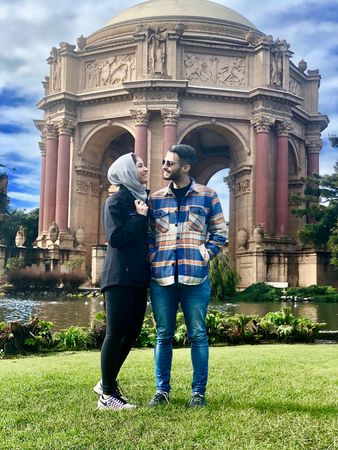Many millennial Muslims are living in the no man’s land between modernity and tradition. They might not want to blatantly flaunt their identity as Muslims, but they do not want to hide it either. They are not looking for hook-ups on Tinder, but neither are they looking for set-ups by their parents. Enter Minder, a dating app that is getting increasingly popular among young Muslims. It has got 3.5 lakh users worldwide and has made one lakh matches.
Haroon Mokhtarzada, who founded Minder in 2015, says he was inspired after he heard several eligible Muslim women complain about how tough it was to find partners. “They had everything going for them and still they found it difficult,” he says. “After you get out of college, you don’t get many opportunities to meet new people.”
Around 80 to 90 per cent of Minder’s users are from the west, and the rest distributed all over the world. As Mokhtarzada emphasises, it is a safe and user-friendly platform. All profiles are verified with a selfie and GPS location.
“I came to hear about Minder from my cousin who had been using it for a few months,” says Fariha Rahman, 24, a nurse from the US. She met her husband Nafis Islam, 29, on the platform. “I thought of it as a joke at first… but nonetheless, I started using it. When Nafis and I first matched, it felt like an instant connection. We always had something to talk about and shared our truest feelings with each other. The marriage took place two years after we matched.”
The difference between Minder and other dating apps like Tinder and OK Cupid is that with Minder, the end goal is very ostensibly marriage. This means that often, the flirting resembles a screening process, as men and women minutely examine each other to see whether potential partners tick all the right boxes.
“We started talking after I messaged him—I thought the tie [he wore] in one of his photos was unique… so I complimented his fashion sense,” says Saba Azizi, 28, a family medicine resident from the US who is engaged to Hadi Shirmohamadali after six months of dating. “He started asking a multitude of questions… it was very much like a one-sided interview, like he was suspicious and wanted to weed me out. But I guess my answers continued to be acceptable so he kept asking until it wore him out.”
Like most people on the platform, Azizi joined it because of the lack of other options. “Online dating was a necessity for me because of my work schedule and location,” she says. “I tried looking for social events with other Muslims in bigger cities within driving distance, but none of them were happening on the weekends I was free.”
In future, Mokhtarzada wants to innovate on the selection process so users can be matched based on more than just looks. “What are you passionate about? Are you both ambitious? I want to help people find compatible, meaningful relationships,” he says.


